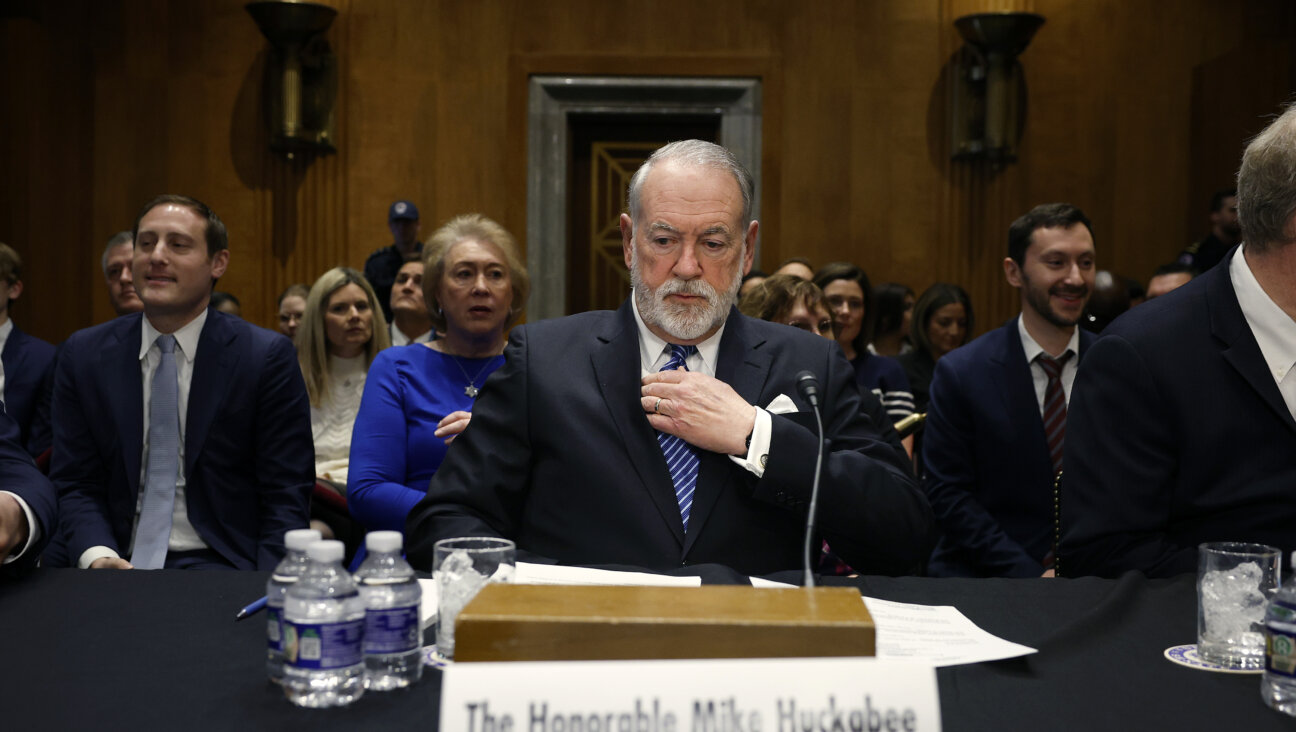‘American Concern’ Enabled Exodus
When questioned about his truly shocking statement that if Soviet Jews were put into gas chambers, it would not be “an American concern,” Henry Kissinger has since responded that this quote “must be viewed in the context of the time,” namely the early-1970s debates over how to help Jews escape the Soviet Union.
During the 1980s, I served as assistant secretary of state for human rights and was deeply involved in this issue. My experience leads me to very different conclusions than those offered by President Nixon’s secretary of state and national security adviser.
In his recent statement, Kissinger said he objected to the Jackson-Vanik Amendment because he opposed making Jewish emigration “a foreign policy issue.” Instead, he noted, the Nixon administration made “private representations at the highest level” that “managed to raise emigration from 700 per year to close to 40,000 in 1972.” Regarding Jackson-Vanik, he said, “We feared that the Amendment would reduce emigration, which is exactly what happened. Jewish emigration never reached the level of 40,000 again until the Soviet Union collapsed.”
Kissinger’s analysis is not reflected in the actual emigration data. He was close on the 1970 emigration figure, which was 1,027. His quiet diplomacy during detente did increase that number to an annual average of 20,516 from 1971 to 1974. But after Jackson-Vanik’s passage in 1974, the average for 1975 to 1978 dropped only slightly to 18,271 annually. Then, in 1979, the number of emigrants jumped to 51,320, much more than anything achieved under the Nixon-Kissinger policy.
But in December 1979, the Soviets invaded Afghanistan, resulting in a serious deterioration of U.S.-Soviet relations. Jewish emigration figures concurrently dropped sharply, reaching a low of 876 in 1984. The following year Mikhail Gorbachev became the Soviet leader, and relations with the U.S. as well as Soviet domestic conditions began to change for the better, slowly at first and more profoundly later.
In early 1987, as the first improvements in Soviet respect for human rights were noted, Jewish emigration figures rose slightly. President Reagan and Secretary of State George Shultz made it clear that the issue of Soviet emigration policy was an issue that affected U.S.-Soviet relations and was to be raised at high-level meetings, meetings whose principal purpose was to discuss arms control.
The task of getting down to specifics was left to me. Thus, in advance of a high-level arms control meeting scheduled for September 1987 in Washington, I traveled to Moscow to see what we could accomplish regarding refusenik cases.
At the Moscow airport, I was met by a Soviet Foreign Ministry official who accompanied me to all the meetings I had during the next two days. The Foreign Ministry had made arrangements for me to meet officials at the OVIR, the Interior Ministry office that handled emigration cases.
At the OVIR, I received responses to a number of cases that involved applicants for exit permits who wanted to join relatives in the United States. But when I turned to a list of cases of refuseniks who wanted to emigrate to Israel, I was told that applicants for exit visas to other countries would not be discussed with the United States.
In keeping with the Reagan-Shultz policy approach of linking human rights concerns with other aspects of foreign policy, I returned to the Foreign Ministry and told my counterpart there that I would deliver a report on my unsatisfactory meeting at the OVIR to Secretary Shultz and that he would undoubtedly raise the issue with Foreign Minister Eduard Shevardnadze at their upcoming arms control meeting.
The following day, as I was leaving Moscow, I encountered at the airport the Foreign Ministry official who had greeted me upon arrival. He bought me a cup of tea, took me to the VIP lounge and said: “That list of names that they did not want to discuss at the OVIR, give it to me.” I dug into my briefcase and handed him the list. It included such well-known names as Ida Nudel and Vladimir Slepak. In the message that I then sent to Shultz, I wrote — using a famous Dean Rusk quote — that the other side “has just blinked.” Two months later, Nudel and Slepak and many others on the list received exit permits.
The official U.S.-Soviet emigration dialogue continued, dealing not only with special cases, but also with our demand for an end to overall limitations on the number of emigration permits. We did not have to wait long: Early in 1988, we saw a sharp increase in exit permits. When I visited Moscow again in September of that year, it was clear that the Soviet leadership had agreed to lift emigration restrictions as an important element of U.S.-Soviet relations. I traveled directly to Jerusalem and told Israeli Prime Minister Yitzhak Shamir to get ready for a large influx of immigrants.
In the next three years — before the Soviet Union’s dissolution — 462,659 Jews received exit permits. This was the direct result of the fact that under Reagan and Shultz, Soviet emigration policy was a matter of American concern.
Richard Schifter is chairman of the board of directors of the American Jewish International Relations Institute.
The Forward is free to read, but it isn’t free to produce

I hope you appreciated this article. Before you go, I’d like to ask you to please support the Forward.
At a time when other newsrooms are closing or cutting back, the Forward has removed its paywall and invested additional resources to report on the ground from Israel and around the U.S. on the impact of the war, rising antisemitism and polarized discourse.
Readers like you make it all possible. We’ve started our Passover Fundraising Drive, and we need 1,800 readers like you to step up to support the Forward by April 21. Members of the Forward board are even matching the first 1,000 gifts, up to $70,000.
This is a great time to support independent Jewish journalism, because every dollar goes twice as far.
— Rachel Fishman Feddersen, Publisher and CEO
2X match on all Passover gifts!
Most Popular
- 1

Film & TV What Gal Gadot has said about the Israeli-Palestinian conflict
- 2

News A Jewish Republican and Muslim Democrat are suddenly in a tight race for a special seat in Congress
- 3

Culture How two Jewish names — Kohen and Mira — are dividing red and blue states
- 4

Opinion Mike Huckabee said there’s ‘no such thing as a Palestinian.’ It’s worth thinking about what that means
In Case You Missed It
-

Fast Forward Trump’s plan to enlist Elon Musk began at Lubavitcher Rebbe’s grave
-

Film & TV In this Jewish family, everybody needs therapy — especially the therapists themselves
-

Fast Forward Katrina Armstrong steps down as Columbia president after White House pressure over antisemitism
-

Yiddish אַ בליק צוריק אויף די פֿאָרווערטס־רעקלאַמעס פֿאַר פּסח A look back at the Forward ads for Passover products
קאָקאַ־קאָלאַ“, „מאַקסוועל האַוז“ און אַנדערע גרויסע פֿירמעס האָבן דעמאָלט רעקלאַמירט אינעם פֿאָרווערטס
-
Shop the Forward Store
100% of profits support our journalism
Republish This Story
Please read before republishing
We’re happy to make this story available to republish for free, unless it originated with JTA, Haaretz or another publication (as indicated on the article) and as long as you follow our guidelines.
You must comply with the following:
- Credit the Forward
- Retain our pixel
- Preserve our canonical link in Google search
- Add a noindex tag in Google search
See our full guidelines for more information, and this guide for detail about canonical URLs.
To republish, copy the HTML by clicking on the yellow button to the right; it includes our tracking pixel, all paragraph styles and hyperlinks, the author byline and credit to the Forward. It does not include images; to avoid copyright violations, you must add them manually, following our guidelines. Please email us at [email protected], subject line “republish,” with any questions or to let us know what stories you’re picking up.















